***Spoilers for the entirety of the show, including the very end of the series. Because you know, big, semi-truck sized stuff happens at the end.***
When I say that I never felt that Sons of Anarchy was a great show it isn’t meant as an insult in any way. SOA has been one of the most enjoyable shows for me over the last eight years. I would often recommend the show to people and describe it as “picture The Sopranos, except it’s a motorcycle gang and Christopher is the main character instead of Tony.” And yet, to call it great would be to concede a number of things that make TV shows great for my personal taste. The story telling was often bloated and unnecessarily convoluted, especially over the last three seasons. Certain characters had delayed “comeuppance” or “justice” for their actions based solely on it being a much showier pitch down the line instead of what would fit logically within the narrative. Whether it was a running joke in the writer’s room or not, it seemed that a car / motorcycle chase through heavily populated areas was required for each and every episode. And then there’s the way diversity was handled but…we’ll get to that later. Still, for a network that had a number of either critically acclaimed or highly rated shows, the fact that Sons of Anarchy became the flagship for it is nothing to be dismissed.
Many TV experts or writers talk about the end of the golden age of TV and how Mad Men will be the last remnant of a certain type of TV show that began with Oz & The Sopranos. We all have our personal lists of the best TV dramas ever, but what is becoming even more interesting to me is what happens to the really good TV shows not in that upper tier. No one’s going to argue about The Wire or Breaking Bad at least being in that best ever list, but the tiers below that make for much more livelier debates. Even the shows widely known as all-time greats still suffer from post mortem analysis of their greatness (like The Sopranos or The West Wing).

Much of it starts with your leading character (and I say character here wishing I didn’t really mean leading man). The Wire being the exception to the rule as it didn’t have a lead protagonist, especially after season 1, but most of these golden age shows have some of the best leading characters we’ve seen in recent memory. Walter White, Tony Soprano, Carrie Bradshaw, Vic Mackey, President Bartlett, Don Draprer, Al Swearingen, etc, will all occupy some special critical space as iconic TV characters that socially moved the needle one way or another (while not a lead character, you can probably add Stringer Bell in that group too). [quote_right]As a modern day Hamlet, it was a joy to watch the “boy who would be king” actually obtain the throne and then deal with an ill-fitting crown.[/quote_right]While Charlie Hunnam as Jackson Teller may not be considered the same caliber of actor as some of the aforementioned characters had navigating them, but Jax to me will be forever iconic. As a modern day Hamlet, it was a joy to watch the “boy who would be king” actually obtain the throne and then deal with an ill-fitting crown. For some of the issues I had with the movements and portrayals of some characters on the show, Jackson always felt consistent to me. Part of that goes to Kurt Sutter and his obvious care with his protagonist through the years, but also Hunnam should receive a lot of credit for that. Through seven seasons, it was fun to watch the young, naive and idealist Jax become a merciless and steel reserved President of the club who played chess as well as he handled a 9mm pistol, even if he overstayed his welcome at the chess board in the end. As we have moved (and continue to move) through this era of troubled (almost always white) men on TV in these morally ambiguous or outright corrupt roles, Jackson settles nicely between a couple of incredible characters in FX’s lore as well.

[divider type=”space_thin”]
Vic Mackey (Michael Chiklis) of The Shield, whose success made SOA possible, was only willing to admit his own culpability when it would save his own skin at the sacrifice of everyone and thing around him. (I’ll never forget Ronnie, played by David Rees Snell, yelling as they arrested him as we all realized he didn’t have the immunity deal Mackey had for just giving his thesis on all the terrible shit he had done). Rayland Givens (Timothy Olyphant) of Justified, who will be following SOA into its last season, may never have to deal with his own failures and complicity with the tragic events surrounding him as he is mission based and focused on a different enemy. It was different and unnerving to watch Jackson not only cop to all the ways he messed up (or was manipulated into messing up) the standing of his family and club, but also owning his inevitable end as well. While hope remained (and was definitely achievable) that Jackson would live, the fact that he accepted his death was both frustrating as fan of the character and admirable as a fan of the show. Jackson didn’t have to die, but he needed to, because he truly felt it was the only way to save everyone else around him.

Sons of Anarchy was so successful as a show because it found out exactly what it’s audience wanted early on and always kept that spine running through to the end. It could manage to surprise with its emotional impact (such as Opie’s tragic storyline and his self sacrifice), it’s brutality (the death of Tig’s daughter or Gemma’s murder of Tara), its very slow, but apparent progressive nature (congrats on integration and having your own Jackie Robinson, SAMCRO) and its ability to play the long game on certain conflicts.

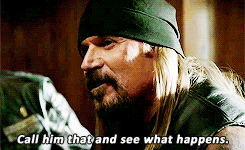
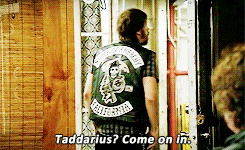
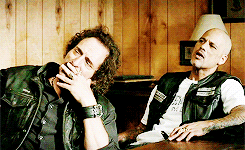
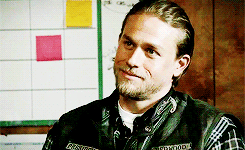
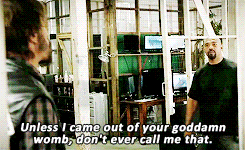
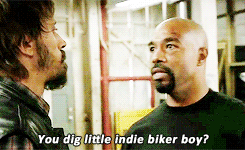

Admittedly, the last of those sometimes frustrated me as I felt Gemma lived entirely too long for all the batshit crazy things she did or Tig’s survival in any way, both hung over the show and dragged it’s narrative at different points. The “Hamlet” storyline basically ended when they shot Clay in the face about 12 times and the show may have went on a season longer than necessary. Ultimately, Sutter gave us a well-rounded look at how corruption is less an abstract thing to hold your nose at and more like a virus that has to be cut out to be stopped. The Sons were a murderous gang of degenerates who called themselves simple “Harley Enthusiasts” and we couldn’t wait to see what crazy shit they would do next. That in itself is an accomplishment.
No, this show did not have the lean and efficient Swiss Rolex watch story telling of Breaking Bad. It did not build a world as compelling or with such memorable characters and archetypes as The Wire. But Sons of Anarchy told a testosterone-fueled and ambitious story of the rise and fall of a hugely likable character, who profoundly affected the environment around him. Not many shows can claim that. And while that may not make the show elite in my eyes, it definitely belongs in esteemed company.


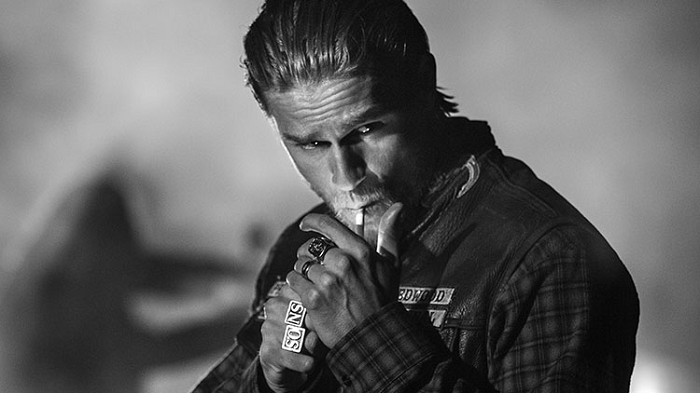
Show Comments
Sean
Good show, watching it now long after it ended.
Even though the characters are bad, I hate watching bad things happen to them.